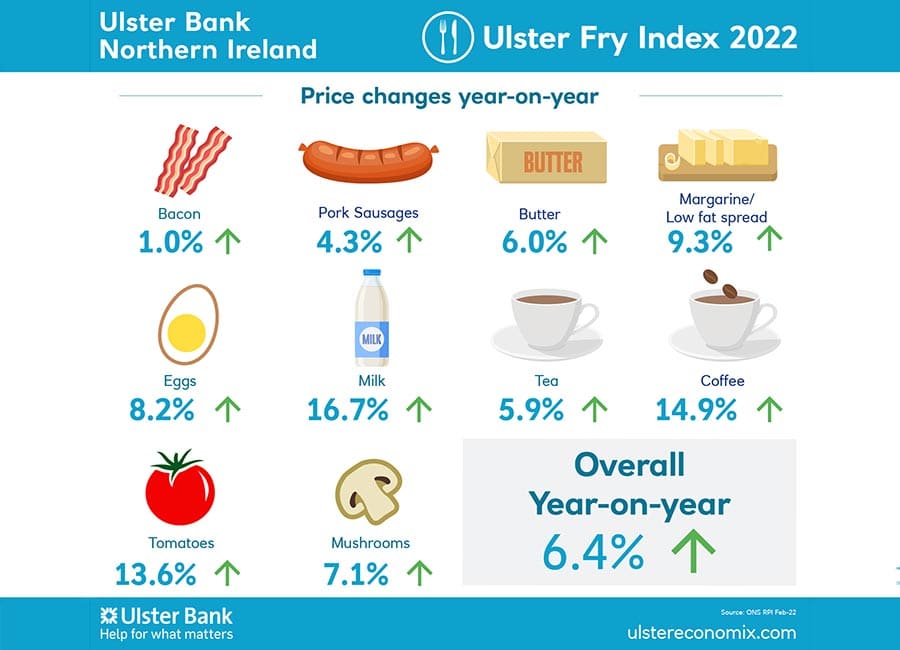The annual Ulster Bank Ulster Fry Index, which monitors the price of items making up the cooked breakfast, has increased by 6.4% in the past year to its highest level since March 2014.
Milk saw the biggest price increase in the index with a rise of 16.7% in the 12-months. There were also strong rises in the price of eggs (8.2%), butter (6%), mushrooms (7.1%), bread (5.6%) and sausages (4.3%).
Looking back to the recession in 2008, the Ulster Fry Index has risen a whopping 29%.
Richard Ramsey, chief economist, Ulster Bank NI, noted that understanding how the price of food items is changing provides insight into the current state of consumer finances, and also some of the challenges facing the agri-food industry.
“The fact that we are now in a new cost of living crisis means that creating an understanding of price rises and cost pressures and where they are coming from is essential,” Ramsey added.
“What the Ulster Fry Index is telling us is that the prices of everyday items like milk and bread are rising really strongly at a time when households are also having to contend with big rises in their household energy bills.
“The reality though is that the Ulster Fry Index is only going to go one way in the foreseeable future, and that is up.
“Given the surge in energy prices already, alongside the disruption to the global food supply-chain stemming from the war between Russia and Ukraine, the Ulster Fry Index is expected to experience double-digit inflation over the next 12 months.”

Food crisis
In Ramsey’s view, a food crisis is on the cards.
“Russia and Ukraine export one in eight of all calories traded worldwide,” he explained. “Cereal crops aren’t just a direct source of food, they are also a major indirect source of food in that they are fed to the livestock that we then consume.
“Food supply problems will further fuel economic nationalism due to the scramble for food security, meaning the further unwinding of globalisation, or de-globalisation. Indeed, such is the concern about the supply of food that countries are now hoarding and stockpiling by banning exports.”
Cormac McKervey, senior agriculture manager, Ulster Bank, stated: “The pace and scale at which input costs continue to rise is alarming. Farm gate prices for beef, lamb, grain, and milk are at an all-time high but margins remain static and, in some cases, are actually lower than this time last year.
“While profitability has yet to dip, certain sub-sectors of the industry are being exposed to greater risks. Pig farmers are facing the most significant impact with input costs rocketing and the price for pork falling throughout the year.
“Land prices remain strong, and the demand is still high, yet we expect the majority of farmers to adopt a holding position rather than look to expand, given the other budgetary pressures currently facing the sector.”
Photo (l-r): Mark Crimmins, Regional Managing Director, Ulster Bank NI; Rhonda Geary, RUAS; Cormac McKervey and Richard Ramsey.











